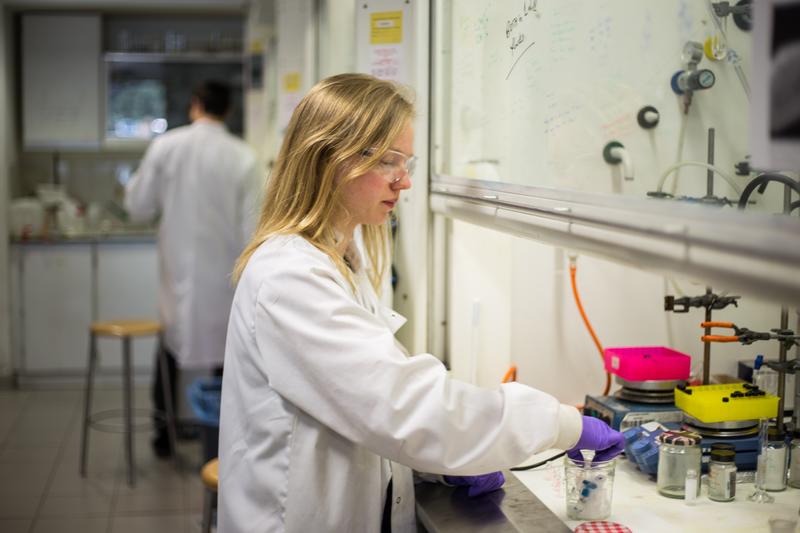The Centre for Doctoral Training in Synthesis for Biology & Medicine
The Centre for Doctoral Training in Synthesis for Biology & Medicine (SBM CDT) is a four-year DPhil programme that offers joint academic-industrial training in all aspects of chemical synthesis, coupled with an in-depth appreciation of its application to biology and medicine. Building on the existing EPSRC-funded centre, altogether the SBM CDT is supported by 11 pharmaceutical and agrochemical companies that have contributed to the design of the programme, content of the course and significant funds to the CDT. Our partners include: AstraZeneca, Evotec, GlaxoSmithKline, Janssen, MSD, Novartis, Pfizer, Syngenta, Takeda, UCB and Vertex.
Central to the academic-industrial model is an intensive teaching component of bespoke courses delivered by frontline industrialists alongside academic researchers, and visits to relevant production and research sites. Altogether, the CDT delivers a training programme focused on producing internationally outstanding doctoral scientists fluent in cutting edge synthesis and its application to problems in biology and medicine.

The SBM CDT operates an open-access IP model between industry and academia to allow completely unfettered exchange of information, know-how and specific expertise between students and supervisors on different projects and across different industrial companies. This means that scientists on the SBM programme will not file for patent protection on any of their research outputs but will make them freely available. This unique open access model has facilitated the development of a vital collaborative network with the CDT’s industrial partners, encouraging exchange of information and scientific expertise between students, academics and industrial partners. This aspect has been key to generating high-impact discoveries and publications, thereby accelerating the advancement of science.
The SBM CDT’s industrial links have led to numerous collaborative projects, including the UCB-Oxford Late Stage Functionalisation Project, a collaboration involving five academics and employing four full-time postdocs in the Department. The project aimed to develop novel methods for the late-stage functionalisation of drug-like molecules, for example, a newly developed sulfonation method using light-mediated catalysis enabled a number of drugs to be functionalised, including Linezolid, an antibiotic used to treat bacterial pneumonia, and Promethazine, an antihistamine with a variety of medical uses.
Visit the SBM CDT website